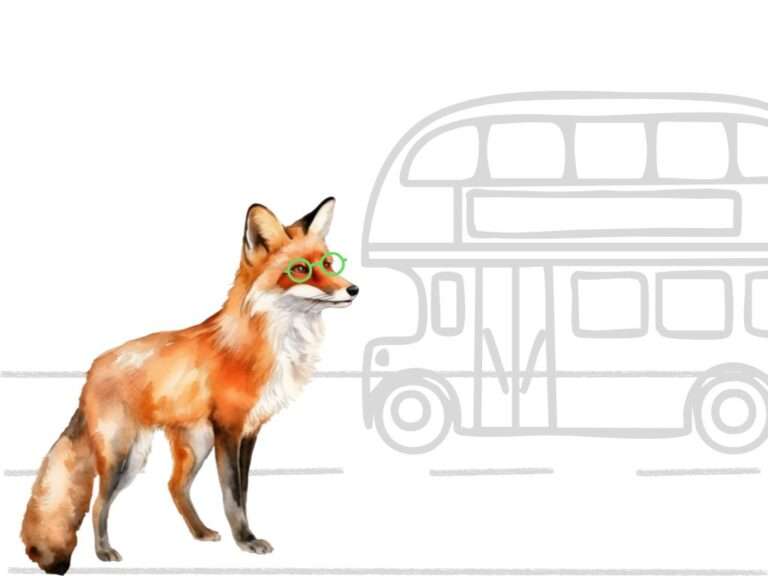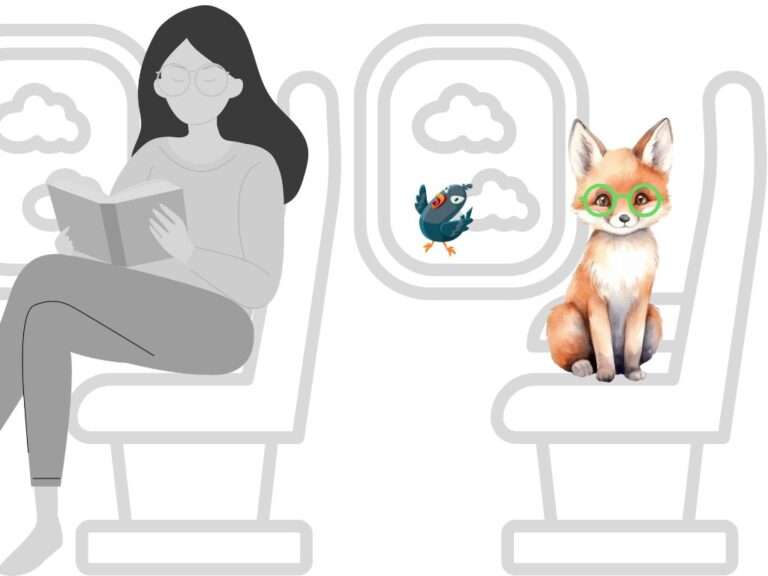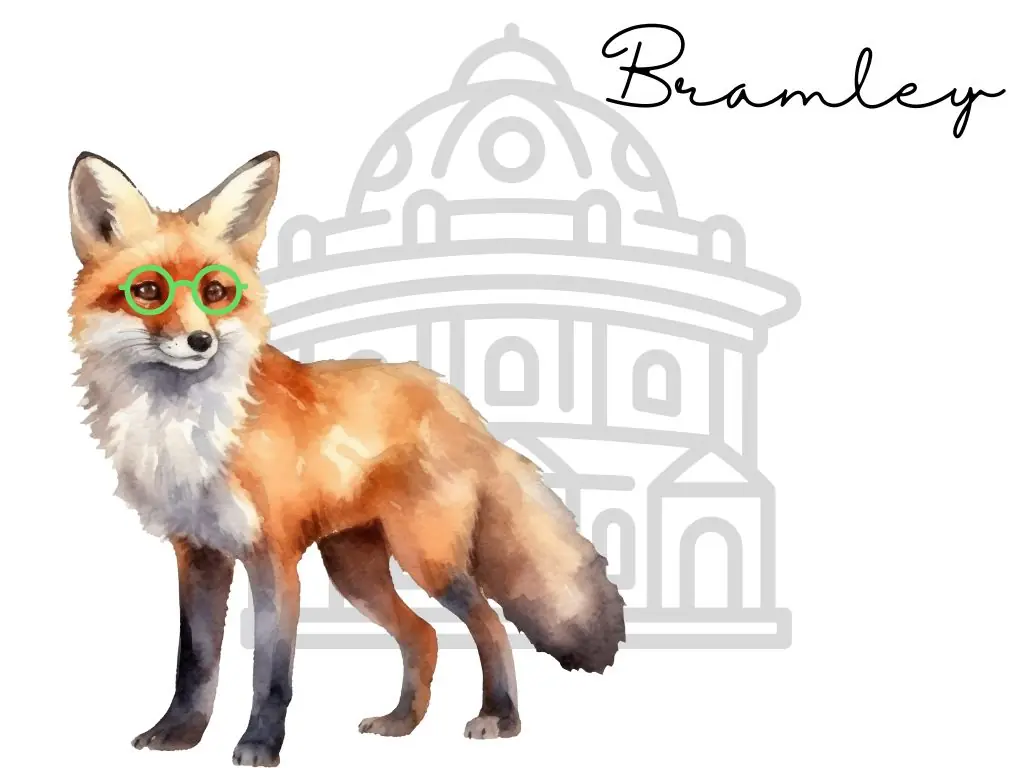It was an unusually warm and sunny day in early April — the kind of golden morning that made the trees in Oxford look like they were leaning in to listen. The weather on that trip had already been strange: too warm for coats, too bright for the forecasts, and somehow perfect for the unexpected.
We were five travelers that day, not our usual six. Pairing up for the ride into town had left me with an open seat — an extra place, really. The kind of opening the universe sometimes fills.
I boarded the A2 bus, focused on the places I wanted to explore — museums, hidden alleyways, a few old bookshops I couldn’t resist visiting. I was already deep in the day’s mental itinerary when we took our seats upstairs on the double-decker.
There’s something about riding high above the street that makes the world feel like a story unfolding just for you. You see beyond the hedges, over the stone walls, into gardens and courtyards and windows you’d miss from the curb.
From up there, even ordinary things feel a little more possible.
And for a moment, the world blurs — between what is, and what might be. And it is precisely in that space, where this story takes place.

Magic at Squitchy Lane
As the bus slowed, a few passengers chuckled quietly.
“Squitchy Lane,” someone said with amusement, as the bus briefly paused at another stop.
But I wasn’t listening.
My eyes had fixed on the impossible.
There he was.
A fox. Wearing green glasses.
Comfortably seated at my side, as if he’d been there all along.
Small, polished, entirely composed. Bright green glasses held on his nose.
He sat upright with the poise of someone who knew exactly where he was — and still felt strangely out of place.
No one else seemed to notice.
Just me.
And while it seemed impossible, this was Oxford — a city where a fox springing to life might not even crack the top ten strangest things to happen.
A place where wardrobes have led to forests, rings to realms, and rabbits to tea.
Here, wonder was woven into the brickwork.
He turned, met my gaze with the faintest glint of humor, and said:
“Named for couch grass, actually. Squitch.
It used to be just a path through the fields — a way of slipping quietly between places.
No signs. No borders. Just the kind of route a fox might take when he isn’t quite ready to be seen.”
He paused, then nodded toward the window as tidy homes and stone walls scrolled past.
“Now it’s a street of scholars and gravel driveways.
Oxford changes slowly. But it changes.”
He watched the rooftops blur past for a moment, then added—almost to himself: “Maybe I’ve changed too.”
A Fox from Oxford
He had lived his whole life in Oxford.
Not in the way people live in a place—rushing past it on errands and assumptions—but truly lived in it. He knew the cracks in the stone, the scent of daffodils in college gardens, the way the bells rang just a touch slower on rainy days. He loved the city the way some of us love a favorite meal: not for novelty, but for comfort.
And for a long time, that was enough.
There were libraries, after all—towering and tucked-away ones. He’d sit outside the Bodleian and soak up the smell of old pages drifting through cracked windows. He listened to students debate over coffee. He memorized poems read aloud by strangers on benches. He wandered among shadows and spires, boots brushing against ancient stone.
He felt Oxford—the way some of us feel home.
He had his books. His bench.
He watched students come and go, lovers argue and make up, and famous speakers shake things up. He perched on low walls and tucked into alleyways, a quiet observer of seasons and stories. And always, he listened to the pigeons between street performances.
Especially the pigeons for they told stories of travels, across time and places.
They spoke of deserts and fjords, palaces and train station cafés. Of sunsets that turned cities gold, and breezes that smelled like salt or spice or citrus.
Their stories began to itch beneath his fur.
“It started as a tickle,” he said later.
“Just a twitch in my tail when someone mentioned Lisbon.”
It wasn’t that he stopped loving Oxford.
It’s just… the bells began to chime too predictably. The pages started to repeat. The cobblestones, once a marvel, now mapped beneath his paws.
And then he noticed the tourists.
At first, they fascinated him. So many languages, so many stories dropped like breadcrumbs. He’d sit and watch them whisper “Wow” in front of buildings he barely glanced at anymore. He tried to see Oxford through their eyes—walked familiar streets backwards, switched up his routines, wore new hats.
But the wonder didn’t return.
He felt saturated, like he’d eaten too many bites of his favorite dish.
“Do I love this place because it’s truly who I am,” he wondered,
“or because it’s all I’ve ever known?”
The question stayed with him.
Leaving had always been the scariest thing he could imagine.
But now, something was shifting. The ache for something new had begun to outweigh the comfort of what was known. The pull of elsewhere was no longer just curiosity—it was an aching hunger.
“They say foxes don’t stray far from home,” he whispered one morning,
“but I’ve begun to wonder… maybe there are parts of me I’ll never meet unless I do.”

Bramley the Fox
There was no great ask. No dramatic plea. Just a small, quiet creature with bright eyes and travel in his bones, boarding the plane like someone who had already made the decision to leave.
He told me his name just as our plane lifted off — British Airways flight fifty-three, bound for Seattle.
He had been watching the clouds settle over England with a look that was somewhere between reverence and relief.
“Bramley,” he said, finally. “Like the apple. Sharp and sweet. Better when you don’t leave it on the tree too long.”
Then he looked out at the clouds again.
“I’ve set off to have a new look at this world.”
A "Fox's Tail" is Born
You’ll find Bramley from time to time at the end of blog posts, offering his reflections in a quiet little section I call A Fox’s Tail.
Where I see the landmarks, he notices the stonework. Where I follow the guidebook, he listens to the pigeons. His view is slower, closer, and always just a little more curious.
Sometimes, it’s the parts of a journey we don’t plan that linger the longest.
The quiet details. The softest moments. The unspoken things that somehow speak the loudest.
It’s often the message underneath the moment — the friction of an unexpected feeling, the surprise of beauty where we weren’t looking — that stays with us. If we lean in, we may find more than we set out for.
The way sunlight hits a wall in late afternoon.
The scent of oranges in a courtyard — the kind that bookmarks you. One whiff years later, and you’re right back there.
A name like Squitchy Lane that sounds silly — and then won’t let you go.
The brush of stone steps worn smooth by centuries of travelers.
A taste that opens something in you — a craving you didn’t know you had, and a memory you’ll want to return to.
The hush of footsteps in a sacred space, and the way the air somehow listens.
A whisper of wind that carries the voices of people who were here long before you.
Doing something backwards — just because that’s how they do it here.
A pigeon that knows more history than the brochure.
Or the sound of your own breath as you finally stop rushing — and look up.
If Sara Joy Travel helps you dream, prepare, and remember —
Bramley is here to help you live the moment that memory will return to.
To travel not just through places, but through moments.
Sometimes, it takes a fox — and a little imagination — to sniff out the quiet moments that turn the ordinary into something extraordinary.

Journal Entry No. 1
Date: April 6
Location: Oxford
(somewhere between Magdalen and a new beginning)
I didn’t expect today to matter.
The bells rang just as they always do.
The pavement still held the warmth of a familiar spring sun.
And the tourists, as ever, were delightfully lost.
But then I saw them — a family on the upper deck.
Laughing. Looking. Really looking.
They counted the spires on a building I’d passed a hundred times.
Found delight in a terribly crooked house.
Unearthed wonder in a moment I would’ve simply trotted past.
It stirred something in me.
A flick of the tail. An itch in the paws.
I want to look with joy —
to see what wonder does to a place, and what it might do to me.
Perhaps it’s time I slipped away for a bit.
Not in haste. Not in protest.
Just far enough to let the edges blur.
To see something new — and maybe see myself a little differently, too.
And maybe, when I return —
I’ll love this city even more.
Perhaps I’ll bring something back with me.
A story. A scent. A way of seeing.
Something that makes the familiar feel fresh again.
Because that’s what travelers do, isn’t it?
They set off. They shift. They return —
and nothing’s quite the same.
Not even home.
I’ve lingered so long in these streets,
I’m not sure where Oxford ends and I begin.
It’s not really possible to get lost here anymore.
And maybe… that’s the trouble.
What happens if I wander elsewhere?
Will Oxford still feel like Oxford —
if I’m no longer quite the same Bramley?
Today, I couldn’t quiet it —
that quiet, certain courage that rises not from the absence of fear,
but right alongside it.
I was ready.
And there was no stopping me.
I know what I know.
I’ve lived it fully, loved it honestly,
and worn it into the soles of my paws.
But I won’t stay simply because it’s all I know.
I want to go —
to sniff out what I don’t yet know.
And I know enough to know
there’s wisdom in a proper wonder.
And that, I think,
is reason enough for a sensible fox to change course.
I didn’t expect today to matter.
But I rather expect it always will.



